For Freddie
CONTENTS
 Suitable for vegans
Suitable for vegans
 Start to finish in 20 minutes
Start to finish in 20 minutes
 Ideal for a lunchbox
Ideal for a lunchbox
All recipes are wheat-free and dairy-free Note that wheat-free does not necessarily mean gluten-free. Recipes using rye flour, for example, contain gluten. Totally gluten-free baking recipes are listed .

Introduction
Exploring and extolling the life-enhancing effects of cooking and eating great food is what I do. And Im increasingly convinced of a couple of things. Really delicious, satisfying food doesnt have to be time-consuming and complicated. And it certainly neednt be rich and laden with fat. Whats more, healthy food doesnt have to be ascetic, restrictive or centred around denial.
I think Ive already proved this point with River Cottage Veg Everyday. It shows that, lovely and exciting as good meat and fish are to cook with, they make us lazy in the kitchen. Put them on one side for a while, or for a few days a week and a torrent of vegetable creativity will be released. I know this approach is now boosting the cooking, and the good health, of families all over Britain and beyond. They are kind enough to keep telling me.
Now I want to encourage another gear change in your cooking and the phrase Light and Easy gets pretty much to the heart of the matter. Im offering up a set of new recipes that are healthy and well balanced, straightforward to put together, but always, unfailingly, delicious.
You might be wondering if the term light implies that this is a diet book. Well, not if you are into counting calories, or looking for guaranteed weight loss. But in the sense that it might very well change the way you eat forever, and for the better then perhaps it is.
Underpinning my idea of light is a notion that might raise a few eyebrows. In much the same spirit as my Veg book, I want to address the suspect ubiquity of a couple of very familiar ingredients. They are milk and wheat. My goodness, they are everywhere!
Wheat is in the bread, biscuits, cakes and pasta that get most of us through our busy working lives. Milk and its derivatives butter, cheese and yoghurt are also key elements of the quick-fix fillers, sandwiches and drinks that we keep turning to, day after day. One or other ingredient probably appears in more than half of all published recipes.
My question is, do they deserve to be quite so popular? Are they that good for us, that indispensable, that we must all consume them by the kilo, week in, week out? Ive been thinking about this, and exploring alternatives, and Im convinced the answer is a resounding no!
We need to recognise that wheat and dairy products can be problematic for many of us and, in excess, perhaps for most of us. The fact that Ive been asked many times by many people to write a book that eschews them is perhaps the first clue. So Ive been listening.
I am party to a dawning realisation that our increasing dependence on industrially processed dairy and refined wheat is not good for us (or indeed the environment). Our unquestioning reliance on refined white wheat flour is particularly endemic. We fill up our children on pasta and bread. Toast is the unconsidered breakfast option of millions, and grabbing a sandwich has become an entirely un-euphemistic description of the way most of us do lunch. Yet the nutritional profile of todays wheat fails to justify such knee-jerk usage.
Products made with wheat flour Im thinking primarily of bread are among the many that can cause unhealthy short-term spikes in our blood sugar. Whats more, modern, high-yielding wheat is very different to wheat grown even 50 years ago. One study has shown a significant decrease in the mineral content in wheat during that time. Another found modern wheat to contain higher levels of a component of wheat protein called Glia-A9, which is known to cause a reaction in people with coeliac disease (a condition that is on the increase).
Even people who arent coeliac can have a severe reaction to wheat and many more of us have at least some problem with it. I certainly know when Ive eaten too much bread or cake. Its that familiar bloated, lethargic feeling, often followed surprisingly speedily by renewed hunger pangs.
Dairy ingredients can also be a challenge to human digestive systems. Its widely recognised that at least 70% of the worlds adult population produce low levels of lactase, the enzyme needed to break down the milk sugar, lactose. Some of those people will suffer the unpleasant symptoms of lactose intolerance (including bloating and all kinds of intestinal upsets). Rates are much lower in people of European descent than other ethnic groups, but digestive problems caused by dairy ingredients are a problem everywhere. I bet most of us know someone who struggles with them. And of course theres no question that cream, butter and many cheeses are high in the saturated fats that can contribute to rising cholesterol levels.
The science of diet is complex and remains controversial especially around wheat and dairy products. This is not least because of the vast vested business interests involved in protecting the industries that produce them. Personal testimony often cuts compellingly through the heated scientific debate. Perhaps, like me, you know people whose bodies and lives were in turmoil, until it was suggested they try giving up wheat. If so, youll know just how rapid and complete a recovery can follow this simple change of habit.
Few of us have quite such a dramatic relationship with wheat and gluten. But my own view, considered and researched if not exactly expert, is that wheat tolerance/intolerance is not a binary matter either. Rather, in terms of our ability to successfully digest wheat and other glutens, we are all somewhere on a continuum. Having the culinary tools to take a break from wheat now and again will help us find a contented place on that continuum. More of that in a moment.
For my own part, I have a fatty story to tell. I was diagnosed a couple years back with high cholesterol close to the score when a man of my age is advised to take statins. I really didnt fancy that route, so I decided to cut down on my daily indulgence of generously buttered bread and spuds and regular outings of the cheeseboard. I began to use rapeseed, hempseed and other cold-pressed oils to trickle on veg and my morning toast.
I didnt give up milk, cream, cheese, butter and yoghurt. I simply chose to recognise when I was consuming them and be conscientious about using them less often, more sparingly, in my cooking. Six months later my cholesterol was smack in the middle of the normal healthy range which is pretty much where it is today.
Im not suggesting for a moment that we should all give up wheat and dairy for good. Butter is a lovely, delicious and versatile ingredient, and I still use it often. I know my wife couldnt make her wonderful sourdough bread without good-quality wheat flour. So when shes rustled up a loaf (at its best with a good smear of salty butter, of course) I might opt to have a couple of days when bread, butter and jam are on my menu. But, following that, Ill put a check on the wheat and the butter, and get back to some of my favourite alternatives.
And thats where the fun starts the range of delicious grains, flours, oils and fats that you can use instead of, or as well as, wheat and dairy products is impressive. Youll quickly find, as I have, that this way of cooking and eating is not restrictive, but entirely liberating. The world outside wheat and dairy is a place where you can enjoy a much wider repertoire of staples. New ingredients or familiar ones used in new ways will bring fresh energy and an uplifting karma to your cooking.
Next page
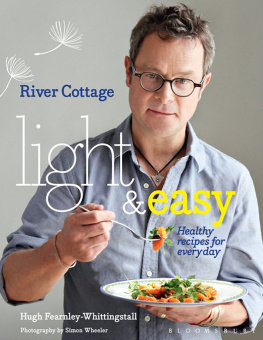
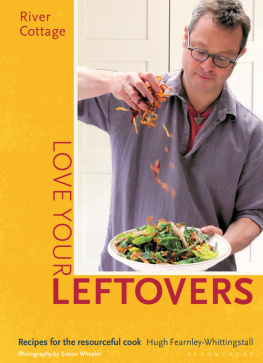
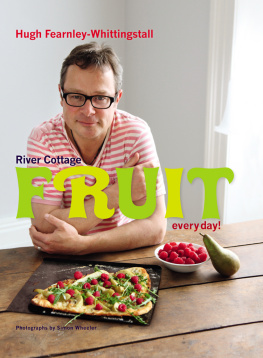
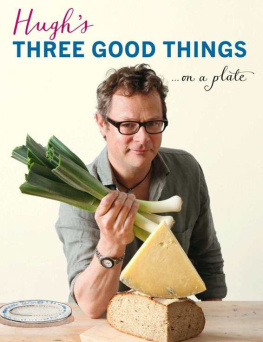
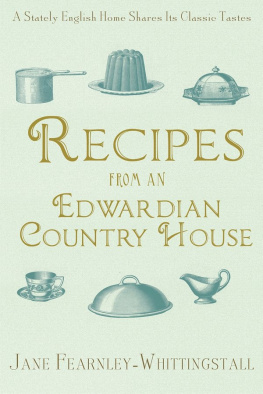

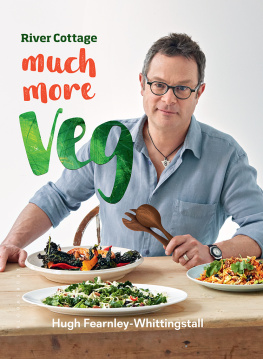
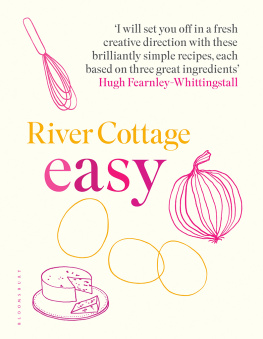
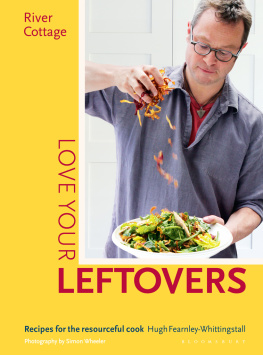
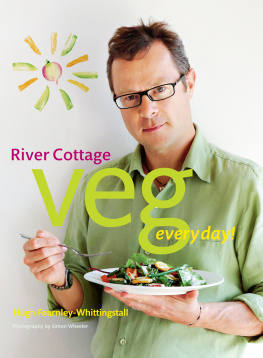
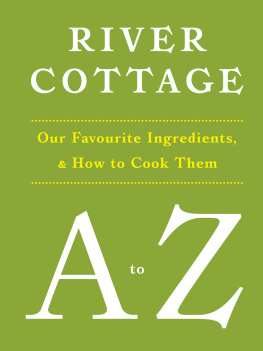
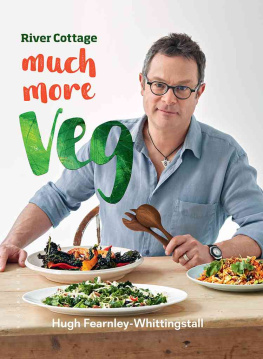
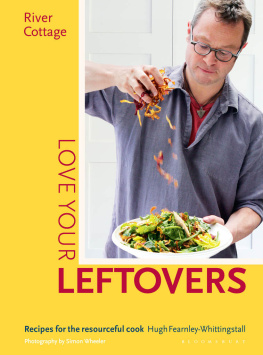
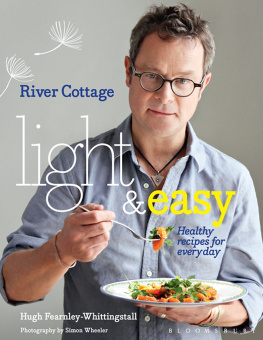

 Suitable for vegans
Suitable for vegans Start to finish in 20 minutes
Start to finish in 20 minutes Ideal for a lunchbox
Ideal for a lunchbox